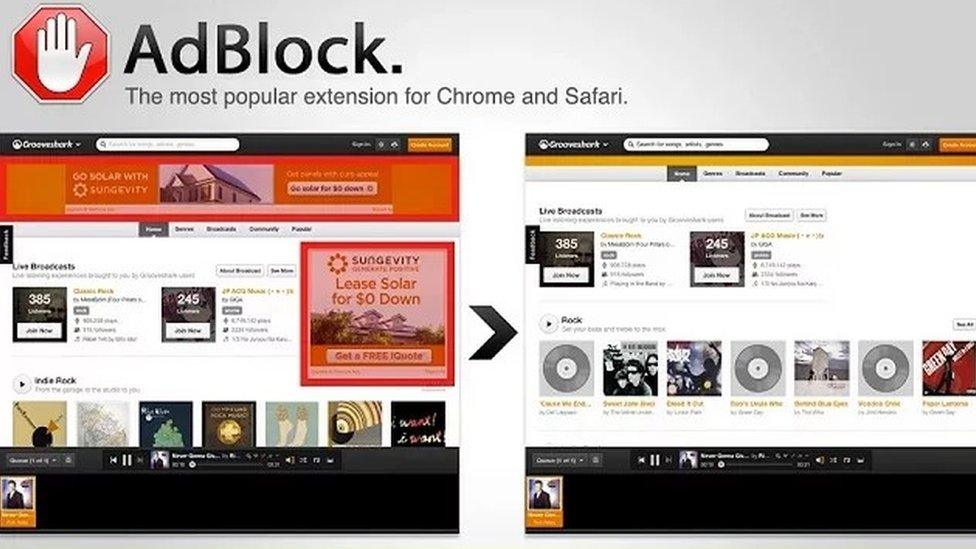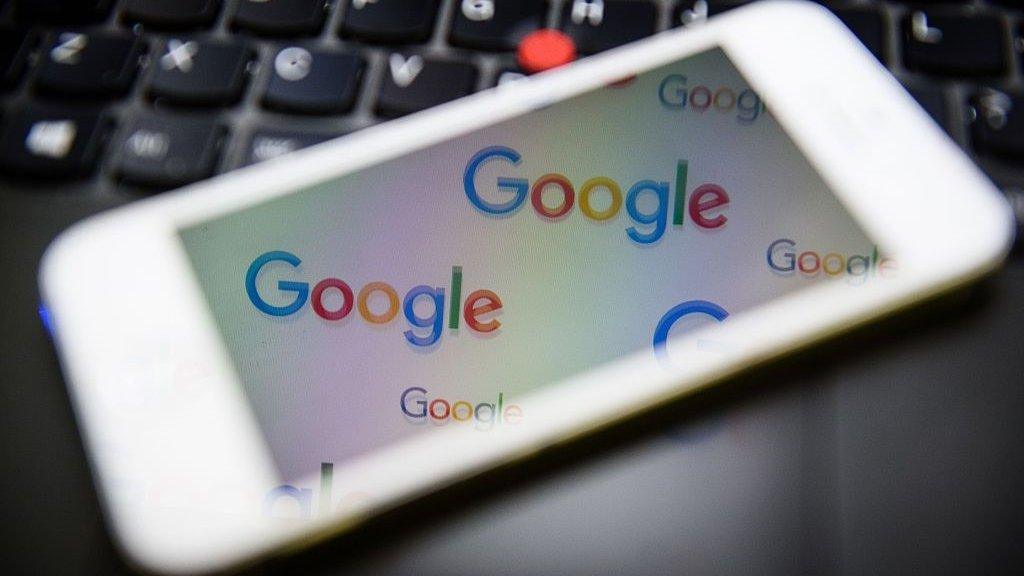Google to let publishers charge users for ad-blockers
- Published

Google will let publishers ask people who use ad-blockers to either enable advertising or make a payment to view content without ads.
"Funding Choices" will roll out first in North America, UK, Germany, Australia and New Zealand, Google said in a blog., external
Google is also working on an ad-blocker of its own, which will function in its Chrome browser.
That will block specific adverts that do not meet Google's standards.
Ad blocking programs are designed to protect consumers from intrusive web ads that slow down browsers and vacuum up personal data.
Ad-blockers take "a big toll" on publishers and producers who rely on advertising revenue, said Sridhar Ramaswamy, Google's senior vice-president in Ads and Commerce.
"We believe these changes will ensure all content creators, big and small, can continue to have a sustainable way to fund their work with online advertising," he wrote.
Google is part of the Coalition for Better Ads,, external a group which also includes News Corp, Facebook and Unilever, and is dedicated to "improving users' experience" of online advertising.
Recent figures from the Internet Advertising Bureau (IAB) suggested that 22% of UK adults use an ad-blocking service online.
In 2016 the service Ad Blocker Plus claimed to have more than 100 million active users worldwide., external
- Published23 February 2017

- Published2 September 2016

- Published12 August 2016
- Published20 July 2016
